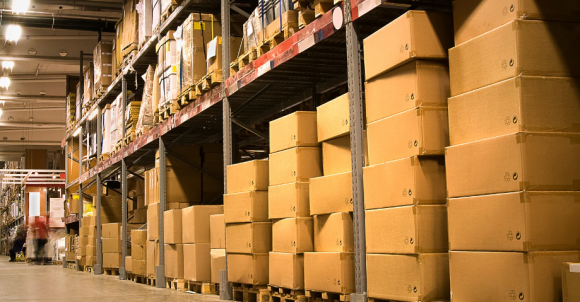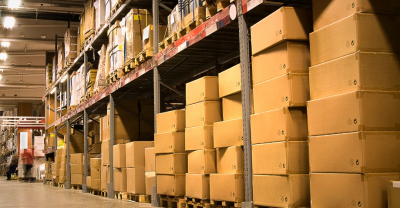Retail giant Walmart is taking another step forward in its technology journey, rolling out 19 autonomous forklifts at four distribution centers (DC).
The initiative is in partnership with FoxBot Robotics, a developer of autonomous forklifts.
Maurice Gray is the general manager at Walmart’s Brooksville, Florida facility. “After a 16-month proof of concept, I’m proud to announce Walmart is taking another step into the future, rolling 19 autonomous forklifts across four high-tech DCs, with the potential for more as we evaluate the benefits to our associates and operations,” says Gray.
Autonomous forklifts in action
Technology is reshaping the way companies fulfill their logistic operations. We see this in the massive move to automation across the globe when it comes to logistics – and getting goods to customers faster, sorting faster and now even using artificial intelligence (AI) to optimize efficiency at warehouse facilities.
Here’s how the autonomous forklift operates at Walmart DC:
Trucks arrive at the DC to be unloaded. With the use of AI-powered machine vision, the forklift unloads pallets to precision and transfers these pallets to be entered into an automated storage retrieval system where goods are categorized and stored.
In February, Arkansas-based ArcBest, an integrated logistics company, launched a new initiative in its Vaux suite – Vaux Smart Autonomy. This new initiative combines autonomous mobile robot forklifts, reach trucks, and intelligent software. This will allow warehouses and distribution centers to autonomously handle goods.
Here’s a scenario: A 30-year-old logistics warehouse has been running its operations the traditional way – planning the dispatch of goods with spreadsheets and relying on an experienced warehouse manager to plan the loading and unloading of goods. Labor shortages have affected operations, and customers are becoming impatient because goods are being received out of deadline.
The company implements autonomous forklifts into its operations. AI has made it easier to load and unload faster. This also allows the business to receive cargo from other customers, maximizing warehouse floor space. The complaining customers are receiving goods on time because bottlenecks have been eliminated. Labor shortage at the facility is no longer a problem.
Improving logistics operations
Autonomous forklifts are helping logistics facilities like warehouses and distribution centers improve safety and efficiency. Here are ways this innovative technology helps companies:
- Increased efficiency and productivity: Autonomous forklifts can operate continuously without breaks, greatly increasing productivity. They can be programmed to follow the most efficient routes around a warehouse, reducing the time it takes to move items. This can lead to faster order fulfillment and help companies cope with high-demand periods.
- Improved safety: These forklifts are equipped with sensors and cameras that help them detect and navigate around obstacles, reducing the risk of accidents. This is particularly important in environments where human workers and machines must coexist. The technology can also be programmed to adhere strictly to safety protocols, which helps in minimizing human error-related incidents.
- Reduced operational costs: By automating routine tasks, autonomous forklifts can reduce the need for manual labor, lowering labor costs.
- Enhanced data collection and analysis: Autonomous forklifts can collect and analyze data on their operations and provide valuable insights into warehouse efficiency This data can help a company’s management identify bottlenecks or inefficiencies in the supply chain, leading to better decision-making and improved operations.
Photo Credit: Canva
About the author
Sharl is a qualified journalist. He has over 10 years’ experience in the media industry, including positions as an editor of a magazine and Business Editor of a daily newspaper. Sharl also has experience in logistics specifically operations, where he worked with global food aid organisations distributing food into Africa. Sharl enjoys writing business stories and human interest pieces.











